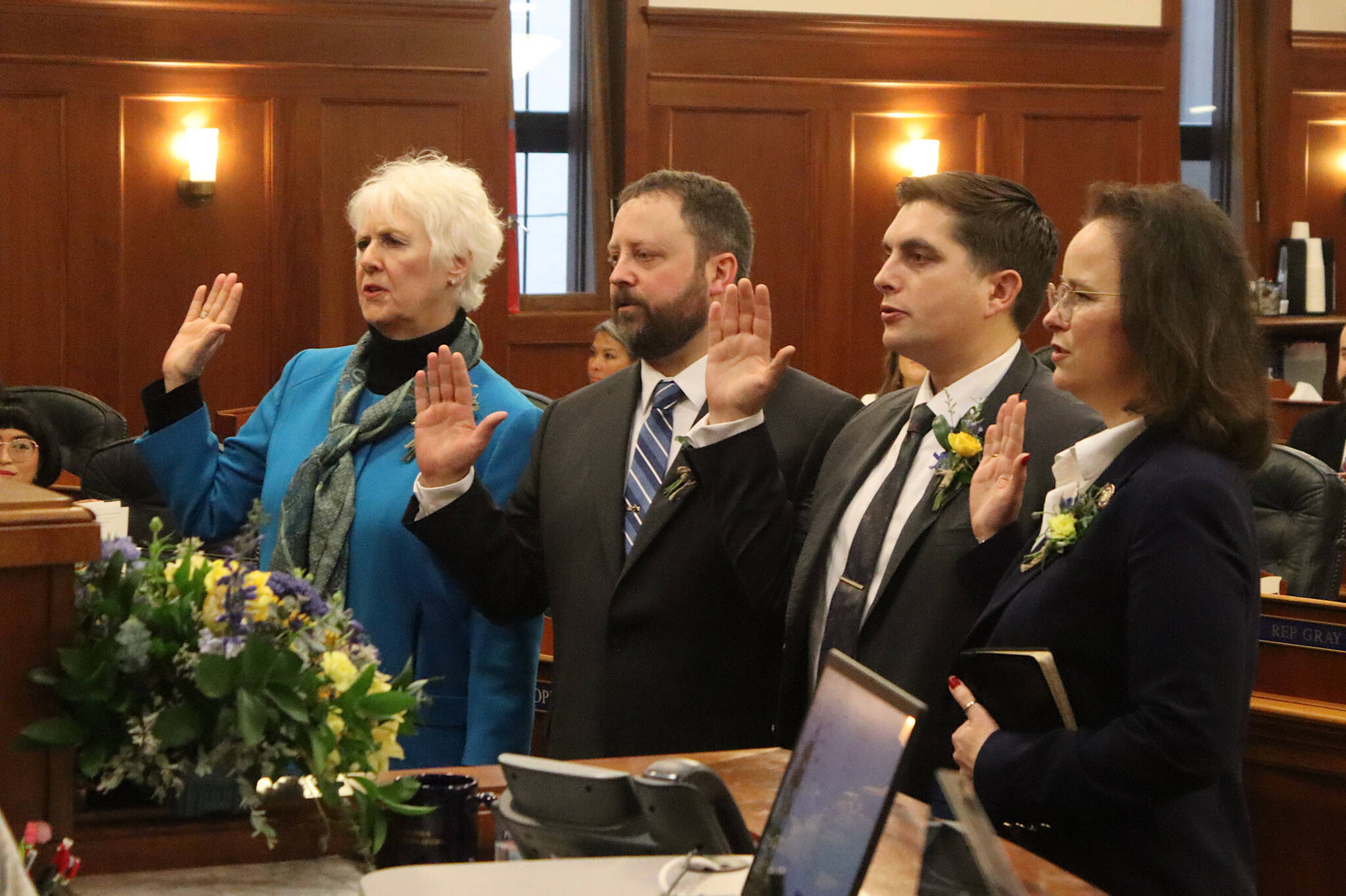When House Bill 69 passed the Alaska Legislature on Friday, including an increase of $1,000 in per-student funding to schools for K-12 education, it did so without support from three of the four legislators from the Kenai Peninsula.
Rep. Justin Ruffridge, R-Soldotna; Rep. Sarah Vance, R-Homer; and Rep. Bill Elam, R-Nikiski, all voted against concurrence on the bill when it returned after approval from the Senate on Friday evening.
Per reporting by the Alaska Beacon, HB 69 passed the House on March 12, when it included an increase of $1,000 to the base student allocation as well as policy by Ruffridge that would create a charter school coordinator and require more reporting from school districts on student growth. The bill that passed the House last month also included other changes like an open enrollment provision, a ban on cellphones, and reading proficiency incentive grants championed by Gov. Mike Dunleavy.
All of the policy language was stripped from the bill, excepting the increase to the base student allocation, while it was considered in the Senate.
On Friday morning, the bill passed the Senate on a 11-9 vote, with Sen. Jesse Bjorkman, R-Nikiski, in favor. Bjorkman did not speak on the bill Friday, but Sen. Löki Tobin, D-Anchorage and chair of the Senate finance committee, said the bill meets the demands the Legislature has heard from teachers, students and parents. Across hundreds of comments and hours of testimony, she said, the call has been for an increase in funding.
The bill that passed the Legislature, stripped to only two lines describing a $1,000 BSA increase, represents “two lines of hope,” she said. That’s as stagnant education funding has eroded the purchasing power of Alaska schools for over a decade.
“Our schools are not failing, they are starving.”
Vance was among the first to speak on the bill when it was heard for concurrence in the House later that day.
School districts, Vance said, need to make changes to how they do business. She acknowledged the need for additional funding, but “I will not do it without necessary reforms.” She said the state can’t afford the increase of $1,000 amid declining oil revenues and missing federal reimbursements.
“I want to keep our promises,” she said. “If we increase $1,000 inside the formula, that is forever.”
Ruffridge, who in March voted in support of the bill, voted against concurrence. The bill that passed the House originally, he said, represented “a consensus, maybe even the word compromise.” That was a bill, he said, with “the legs to make it to the finish line.”
“That’s the effort that it takes to pass large-scale reform packages,” he said. “That’s what it takes to increase education funding by a large amount, which I think we all agree is necessary, right even.”
The House has to get to the finish line on education reform, Ruffridge said.
“I’m not certain this is it.”
Elam did not speak on the bill Friday, but joined Ruffridge and Vance in voting against it. The bill passed on a 21-16 margin with three legislators excused.
The Kenai Peninsula Borough School District is crafting a budget with severe cuts to staff, programming and facilities in the face of uncertain funding from the state, as it grapples with a $17 million deficit.
At a budget work session earlier this month, KPBSD Board of Education President Zen Kelly said he would ask the district’s finance department to construct a draft budget that describes the elimination of elementary school counselors, small school counselors, Quest teachers, counseling assistants, student support liaisons, pool managers and theater technicians, as well as other staff and program reductions.
Even if funds are approved by the Legislature, Kelly said, a veto by Dunleavy “would not surprise me.” That’s exactly what Dunleavy has promised, writing on Facebook before the bill was passed “Unless it is amended to address needed policies, if this lands on my desk, it’ll be vetoed immediately.”
The Alaska Beacon reported Monday that the bill had been transmitted to the governor, though as of Tuesday afternoon he had yet to issue the veto. With only 32 legislators voting in favor of the bill on Friday, the meeting bar of 40 votes to override a veto is steep.
Full recordings of the Senate and House floor sessions from Friday can be found at ktoo.org/gavel.
Reach reporter Jake Dye at jacob.dye@peninsulaclarion.com.


